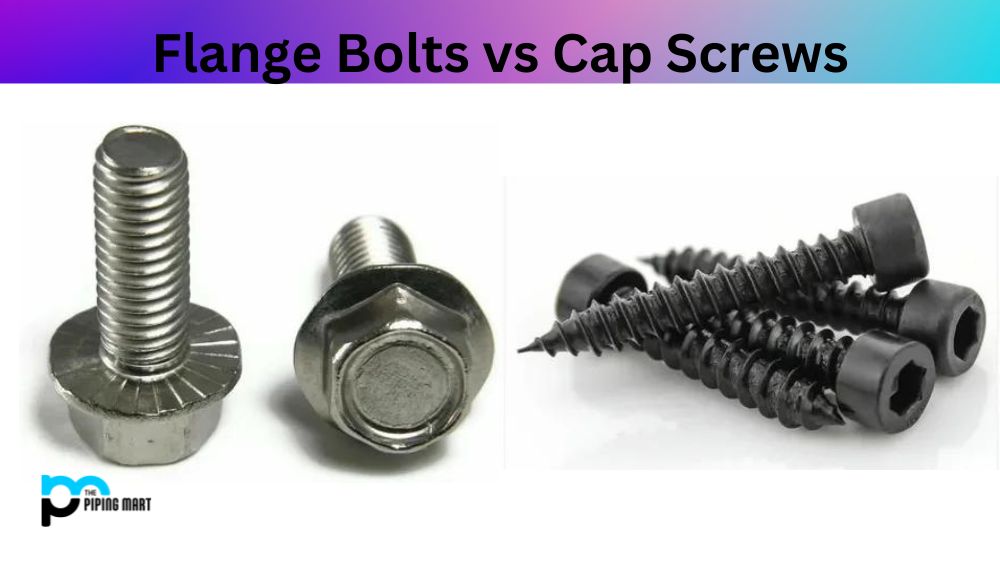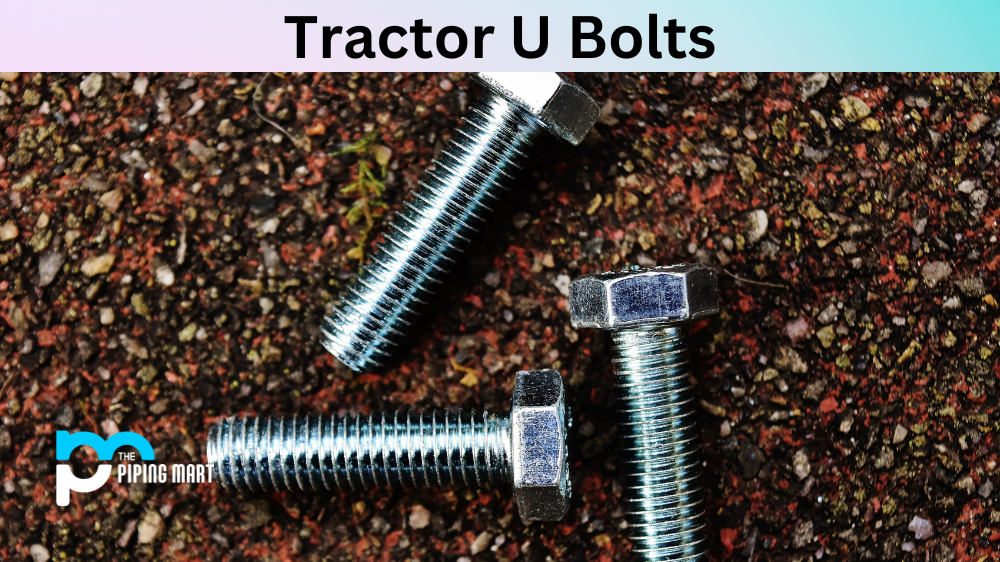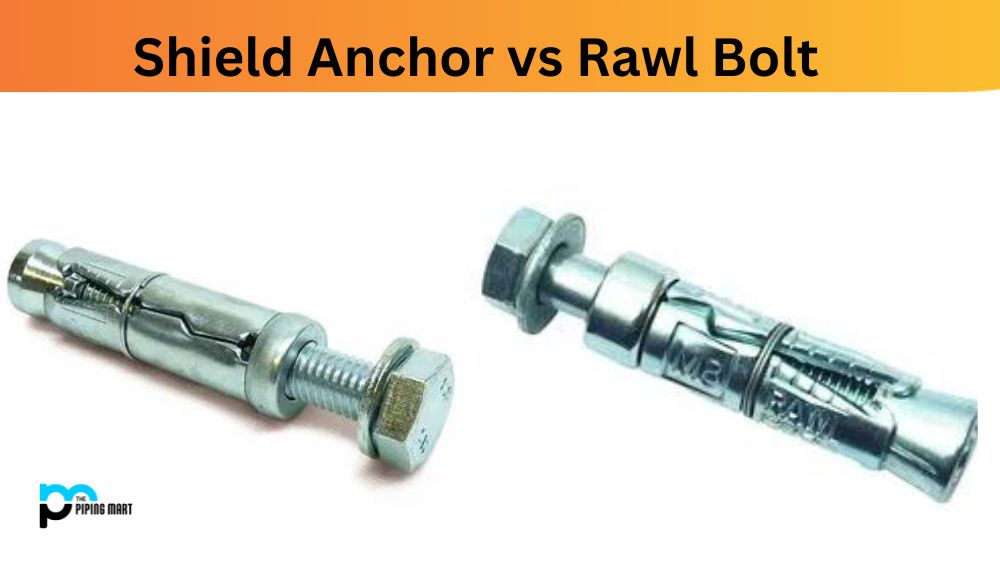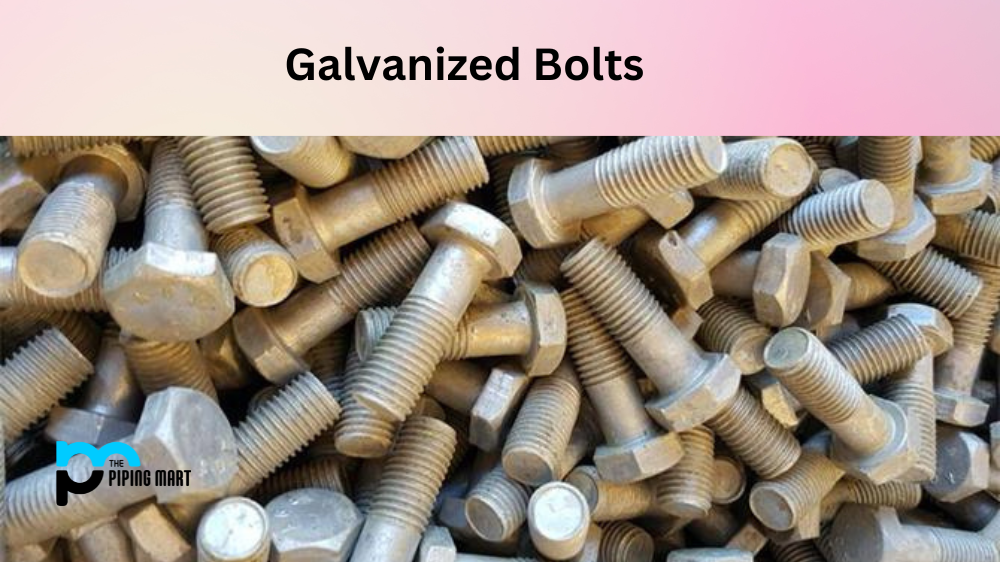The choice of fasteners can be quite a tricky affair, especially regarding critical applications. One of the most common debates among engineers and technicians is choosing between flange bolts and cap screws. Although these two fasteners might seem similar, they have a few differences that set them apart. In this blog post, we’ll discuss the differences between flange bolts and cap screws to help you make an informed choice for your application.
What is Flange Bolt?
A Flange Bolt is a high-strength fastener used to connect flanged joints. It features an integrated washer that helps provide extra support, creating a secure connection between the two surfaces of the joint. The bolt head is configured to fit into countersunk holes in one surface and form a flush attachment when tightened with nuts. This bolt type provides superior strength and reliability compared to traditional fastening methods.
What is Cap Screw?
Cap Screws are externally threaded fasteners used in a variety of applications. Depending on use, they feature a cylindrical head and can be either fully or partially threaded. They come in all sizes and varieties, from fine thread models for small projects to heavy-duty ones used in construction, engineering, and industrial operations. In most cases, cap screws require an internally-threaded nut or other similar device to be secured properly. Generally, any project involving fastening requires cap screws for durability and reliability.
Difference Between Flange Bolt and Cap Screw
Head Style
The head style is one of the most visible differences between flange bolts and cap screws. Flange bolts have a hexagonal head that protrudes from a washer-like flange. The flange of the bolt helps distribute the load over a larger surface area, reducing the risk of compressing the gasket or damaging the joint. On the other hand, cap screws have a cylindrical head with a countersunk recess designed to flush with the fastened material.
Thread Style
Another key difference between flange bolts and cap screws is the thread style. Flange bolts have a larger surface area on the threads which helps distribute the load better than cap screws. The threads are also pre-coated with a lubricant to minimize the torque required during installation. Cap screws, on the other hand, have a smaller surface area on the threads, making them less effective in reducing the risk of loosening.
Application
The choice between flange bolts and cap screws usually depends on the application. Flange bolts are preferred for critical applications with a risk of joint failure or leaks due to pressure or vibrations. They are commonly used in oil, gas, automotive, and aerospace industries. Cap screws, on the other hand, are preferred for applications where a flush surface is required, such as in the machinery or electrical industries.
Torque and Tension
Flange bolts and cap screws also have different torque and tension requirements. Due to the larger surface area on flange bolts, they require higher torque values to achieve the recommended tension. On the other hand, cap screws require less torque values to achieve the same tension due to their smaller surface area. However, it’s important to note that torque and tension levels should always be determined based on the specific application requirements.
Availability
Finally, availability is another factor to consider when choosing between flange bolts and cap screws. Flange bolts are not as widely available as cap screws and can be harder to find. Cap screws, however, are easily available and can be found in local hardware stores or online.
Conclusion:
In conclusion, choosing between flange bolts and cap screws highly depends on the application requirements. Although they might seem similar, the differences in head style, thread style, application, torque, and tension requirements should be considered before making a choice. If you still need to decide which one to choose, consult an expert or supplier who can recommend the best option for your application.

Pipingmart is B2B portal specializes in industrial, metal and piping products. Also, share latest information and news related to products, materials and different types grades to help business dealing in this industry.




